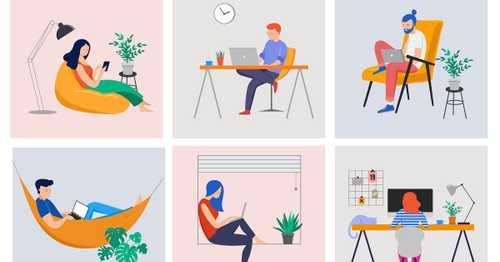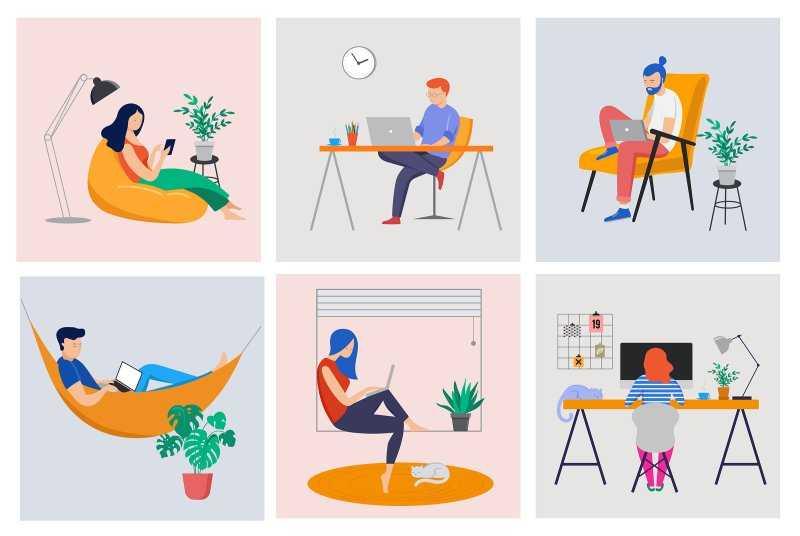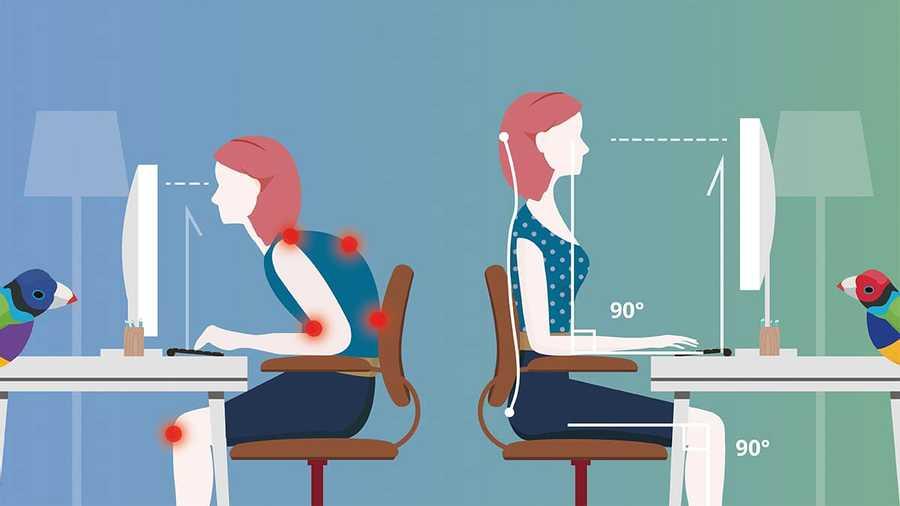How to Avoid Serious Back Pain While Working at Home
Curated from: time.com
Ideas, facts & insights covering these topics:
10 ideas
·6.02K reads
21
Explore the World's Best Ideas
Join today and uncover 100+ curated journeys from 50+ topics. Unlock access to our mobile app with extensive features.
Aches and pains
With the 2020 pandemic, many people are required to stay home.
If you're one of these people, you may be noticing new aches and pains you did not experience at the office.
165
994 reads
Ergonomic furniture
Many companies follow an ANSI-HFS standard in the design of their computer workstations, which incorporates ergonomic furniture and accessories.
Most homes don't have the space to accommodate ergonomic office furniture, nor do most people invest in it. If you're working from home using your computer on a regular table or you sit in a lounge chair or on your bed, chances are you aren't in a healthy posture. It could potentially lead to musculoskeletal injury, carpal tunnel syndrome, or even deep vein thrombosis.
155
511 reads
Your computer screen
View your computer screen with a straight neck. Put your screen in front of you at a comfortable viewing height. Don't look down at your screen or angle your screen, so you must twist your neck.
You may have to put the screen on a pile of books or on a cardboard box to raise it to a comfortable viewing position.
198
919 reads
Minimize visual eye strain
Put your screen sideways to a bright window.
Unless the window has shades or drapes, don't work with your back to a window, as the light will cause glare on your screen. Similarly, don't work facing a window, as you'll stare into the light.
151
671 reads
Viewing documents
View any paper documents with a straight neck.
Don't read from an iPad or paper that is flat on your table, as your head will constantly have to move up and down. Use a vertical document holder or put your iPad on a stand.
146
555 reads
Your keyboard and mouse
Put your keyboard and mouse or touchpad at a comfortable height in front of you. If your laptop is raised to get your screen to the right level, then use a separate keyboard and mouse.
- Your forearms and hands should be level and straight, and your arm should be close to the side of your body when you use a mouse.
- The more you stretch your arm out to the side, the higher the chance of straining your neck or shoulder.
- Don't put anything beneath your wrists as it adds compression on the finger flexor tendons and the median nerve, which increase the risk of carpal tunnel syndrome.
- Alternate between typing/mousing and using voice input. This gives your arms, wrists, and hands time to rest.
155
378 reads
Sit back in your chair
Don't sit upright or hunch forward in your chair. Ensure that you can sit back in your chair while still close enough to comfortably reach your keyboard and mouse.
If the chair does not have good lower-back support, use a cushion or rolled-up towel behind your lower back.
155
475 reads
Foot position
When sitting, rest your feet flat on either the floor. If your feet don't reach the floor, use a box, pile of books, cushion, or footrest.
Don't put your feet back underneath your chair or let them dangle, as this puts pressure under the thighs and restricts blood flow to your lower legs and feet, increasing your risk of deep vein thrombosis.
161
435 reads
Working on your bed
Limit the time you work on your bed, as most positions cause you to hunch over.
If a bed is your only option, put a pillow behind your back to rest against the headboard. Put your laptop on a cushion in your lap.
152
504 reads
Avoid prolonged standing
Don't try to work for hours on end standing up. Ergonomists have long recognized that standing to work requires more energy than sitting and puts a greater strain on the circulatory system, legs, and feet. Standing for extended periods of time increases the risks of varicose veins.
Stand or walk to take phone calls. Every 20 to 30 minutes, stand, stretch, and move around for a minute or two to promote circulation.
161
587 reads
IDEAS CURATED BY
Wannabe explorer. Tv nerd. Communicator. All about healthy food and healthy living.
Brianna R.'s ideas are part of this journey:
Learn more about health with this collection
How to strengthen your willpower
How to overcome temptation and distractions
The role of motivation in willpower
Related collections
Similar ideas
Read & Learn
20x Faster
without
deepstash
with
deepstash
with
deepstash
Personalized microlearning
—
100+ Learning Journeys
—
Access to 200,000+ ideas
—
Access to the mobile app
—
Unlimited idea saving
—
—
Unlimited history
—
—
Unlimited listening to ideas
—
—
Downloading & offline access
—
—
Supercharge your mind with one idea per day
Enter your email and spend 1 minute every day to learn something new.
I agree to receive email updates



